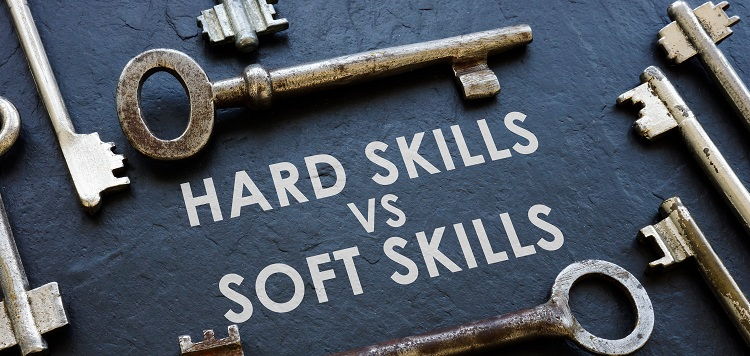Hard skills and soft skills are both essential when it comes to achieving success in the workplace. Hard skills are the specific technical abilities required to perform a job, while soft skills refer to the personal attributes and interpersonal skills that foster effective communication and collaboration. In today’s fast-paced and dynamic work environment, having a good balance of both hard and soft skills is critical for employees and organizations to excel.
Hard Skills vs. Soft Skills
While hard skills are most commonly associated with technical knowledge and expertise, they can also include things like industry-specific certification and skills gained through formal education. Examples of hard skills include accounting and finance, programming languages, data analysis, and project management.
On the other hand, soft skills refer to the more intangible, personal qualities that people possess. These include communication, leadership, problem-solving, creativity, and emotional intelligence. Soft skills can be developed through experience but may also come naturally to some individuals.
The Interplay Between Hard and Soft Skills
Hard skills and soft skills are not mutually exclusive, but instead, play off against each other. For example, a software developer with exceptional programming abilities may struggle to communicate effectively with their colleagues. Similarly, a sales professional who has excellent communication and persuasion skills would be less effective if they lacked the knowledge or technical expertise specific to their industry.
Having a blend of hard and soft skills is crucial in a wide range of professions, including healthcare, education, finance, and technology. In healthcare, doctors and nurses need both technical knowledge and communication skills to provide the best possible care for their patients. Educators require specialized knowledge in their field while also being able to communicate well with students and parents. With significant advancements in technology, being able to work effectively with computers and AI is also an increasingly vital skill.
Hiring for Hard and Soft Skills
One of the key challenges for hiring managers is finding candidates who possess the right balance of hard and soft skills. Evaluating technical skills is relatively straightforward, and a candidate’s experience and qualifications can typically provide insight into their hard skills. However, evaluating someone’s soft skills is more challenging since it relies primarily on observation and assessment during the selection process.
To successfully hire for both hard and soft skills, hiring managers must identify the skills necessary for the job and then tailor their approach accordingly. Using behavioral assessment tools or conducting behavioral interviews are effective methods for evaluating soft skills during the hiring process.
The Impact of Skill Gaps on Organizational Performance
Research shows that 54% of organizations believe they are managing significant skills gaps that directly impact their overall organizational performance. If an organization lacks key hard skills such as programming or data analysis, they may struggle to remain competitive, while a lack of soft skills can lead to poor teamwork, miscommunication, and low employee morale.
Skills gaps can occur for a variety of reasons, including rapid technological advancements, changes in industry regulations, or a shortage of qualified candidates. While skills gaps may seem daunting, there are several strategies that organizations can leverage to close those gaps, including providing ongoing training and development opportunities for current employees and expanding the talent pool through recruitment and retention initiatives.
Managing a Balanced Team
Actively managing your team to have a healthy balance of hard and soft skills is essential for your company to reach its goals. Most managers are always assessing or tracking many of the team’s hard skill sets without knowing it, but soft skills remain more challenging to measure and track within a team.
Building a team that incorporates a range of complementary hard and soft skill sets is a great way to ensure the future balance and effectiveness of the team. Managers should provide training and mentoring opportunities to build employees’ technical knowledge and foster their soft skills, such as communication and leadership, to help them thrive in their roles.
In today’s competitive and rapidly evolving business landscape, the importance of finding a balance between hard and soft skills cannot be overstated. Understanding the complementary nature of the two skill types and taking an active role in developing them can help ensure individual success and build a well-rounded organization. By identifying key gaps and providing opportunities for training and development, organizations can create an environment that fosters the growth and success of both their employees and the business as a whole.

